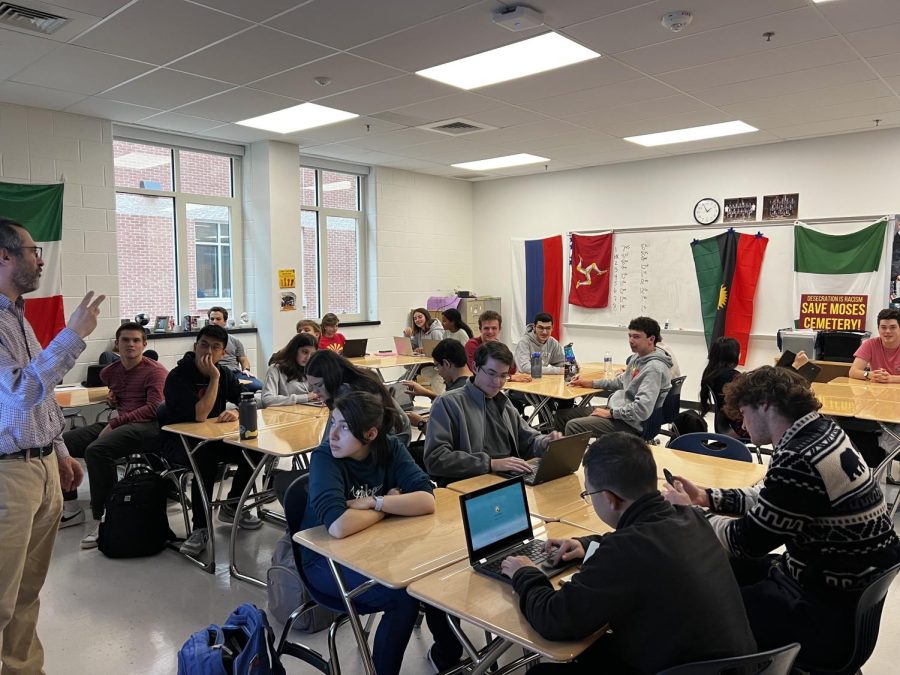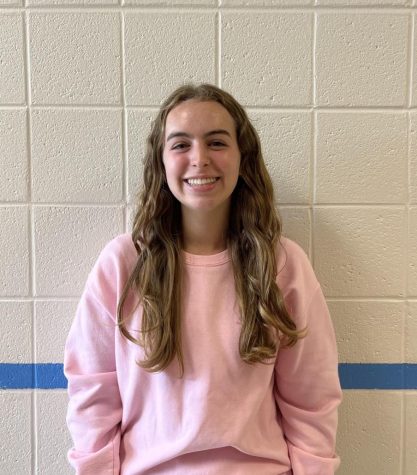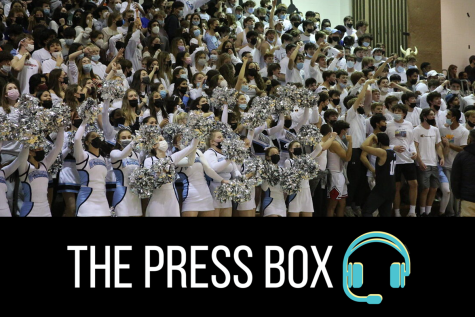“Our courses look into what students are interested in talking about”: Students explore new course offerings
Andrew Sonnabend teaching the new Political Behavior and Psychology Course
December 1, 2022
When Leadership Academy for Social Justice (LASJ) lead teacher Sheryl Freedman heard that her students were interested in adding a science component to the Academy, she knew that she needed to fulfill their request.
Through conversations with students and teachers, it became clear that Whitman students were passionate about learning more about science as it relates to social justice. With the help of LASJ, other teachers, administrators and students, Freedman will make these students’ dreams a reality.
After months of discussion and research to develop the curriculum of the course, Whitman will be offering a one-semester LASJ Environmental Justice course during the second semester of the school year.
The goal of the course is to educate students about the inequalities associated with the environment in relation to class, gender and race. Students will learn about different aspects of environmental justice including the environmental workforce, environmental health and clean energy transitions.
To introduce a new course to the classroom, a passionate teacher must pitch the idea to the administration. As teachers strive to provide students an opportunity to dive into a new topic, the process requires demand from students for the concept.
Whitman’s LASJ program aims to offer classes that teach students how to become socially responsible and active in their communities. The academy includes LGBTQ+, African American and Women’s Studies courses. After receiving feedback from students, adding a science-related class felt like the next logical step for the academy, Freedman said.
LASJ teachers collaborated to develop a more solidified idea for a course that fulfilled this concept. Once they refined the ideas they felt were key to the success of the course, they presented the concept to administration.
Administration also felt that the idea was one that students are passionate about and would be interested in and they too had noticed a demand for it. Recognizing the potential the class had, they agreed to add the course to Whitman’s current itinerary.
From there, the group of staff members began to work together to further develop the curriculum and goals for the class.
“So we started the process, which is to really start to brainstorm what this class is going to be,” said Assistant Principal and 11th Grade Administrator Gregory Miller. “It’s not only staff members, but it’s also sometimes getting students involved and getting their ideas.”
After soliciting input from students with leadership roles in the LASJ, administrators and LASJ teachers determined which specific concepts they planned to address in the program.
The classes focus on the academy’s four core concepts; identity, diversity, justice and action. In developing the curriculum, LASJ teachers worked together to incorporate these principles into the content of the course by analyzing how they apply to environmental justice.
Within the LASJ, teachers have more flexibility to adjust their classes to cover current world events in elective courses, Freedman said. In Environmental Justice, similar to other LASJ classes, students will have the opportunity to share issues that they are interested in with their teacher, and their teacher has the ability to incorporate lessons focusing on these issues into the curriculum.
“All of our courses look into what students are interested in talking about as well,” Freedman said. “While there are structures of units, we can also take it in different directions, if we choose.”
Once they were satisfied with the purposes and goals of the classes, LASJ teachers and administrators worked these ideas into a proposal as a pilot course for the Board of Education to review. In some cases, the Board amends proposals. But, the Board was also excited about the impact the class could create for students, and approved it. Students immediately gravitated toward the class after it appeared on Whitman’s 2022-2021 course bulletin, Miller said.
After garnering positive feedback from students, administrators and LASJ teachers will offer this course in just a few months.
“It [is] a highly enrolled elective that we are super excited that we’ll be running this spring,” Miller said.
Teachers can also introduce classes that have already secured approval at other schools in the county, like the Political Behavior and Psychology course.
Psychology teacher Marisa Del Savio first noticed the class when looking through the catalog of courses offered throughout the county. She then brought the course to the attention of another social studies teacher Andrew Sonnabend.
“The class itself was piloted in Blair [High School] and was on the books until it caught both Ms. Del Savio’s and my eye,” said Sonnabend, who teaches AP Comparative Politics and AP Psychology.
With his extensive experience teaching Social Studies at Whitman, he figured he’d be the logical choice to teach the class, he said.
“[Administration] agreed that it actually fits into a lot of what we’re trying to do with understanding the people around us, the world around us,” Sonnabend said. “It’s a new look at things we’ve already taught in Psychology.”
Political Psychology students spend the semester exploring political behavior in the United States, focusing on topics like polarization and current political events.
Junior Sara Willhauck found herself drawn to the unique topic, she said. Interested in both aspects of the course, she decided to enroll.
“I knew I was going to take Comparative Politics and also Psychology,” Willhauck said. “So I thought it would be a good elective to take to connect two of my classes.”
After Sonnabend and Del Savio found that Social Studies Resource Teacher Suzanne Johnson shared their enthusiasm for introducing the course to Whitman, they proposed the idea to administrators, who approved it for the 2022-2023 school year.
The curriculum has already been developed by Montgomery Blair High School teacher Sean Gabaree, and Sonnabend adjusted the content to fit his teaching style and focus on the concepts he thought Whitman students would be most interested in.
“This summer, I spent some time looking up some stuff I can do in class, just looking for ideas,” Sonnabend said. “I checked out some syllabi from colleges just to get an idea of what teachers and professors are doing around the country for this class and then tried to adapt it.”
As the year progresses, Sonnabend said that he plans to continue adjusting the course’s curriculum based on student feedback and will adapt the curriculum to teach about current events in the world.
“I hope to just learn more about how human psychology affects our political decisions, and apply that to how I think,” Willhauck said.
Going forward, Miller hopes to continue student involvement in the process and develop courses that reflect students’ interests and passions.
“I think students are heavily involved,” Miller said. “I hope as we continue to grow, we continue to see students more and more involved in the process.”









